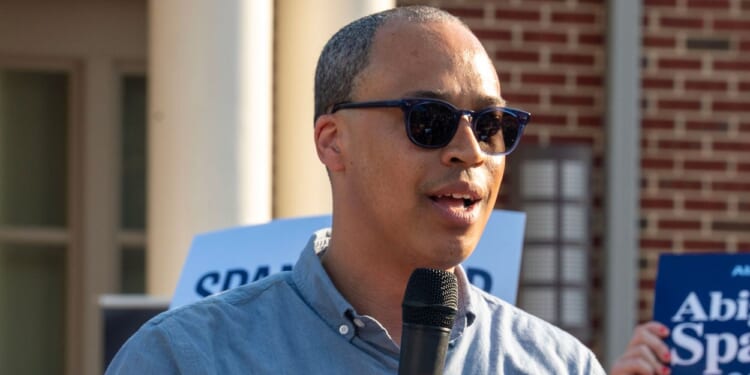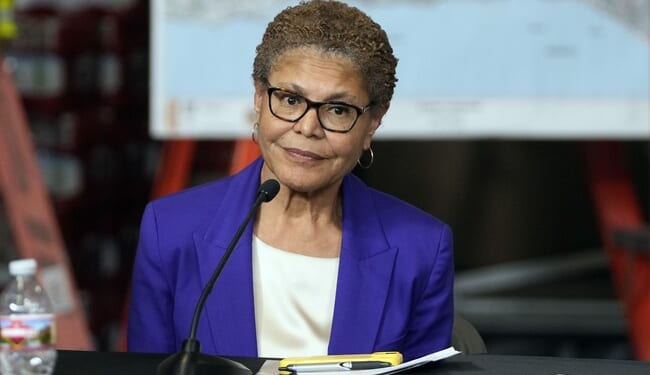Some of us have been voting long enough that we can still remember when Election Day was just that—Election Day.
Not Election Week. Not Election Month. Not Election Season.
For most of American history, Election Day was called that for a reason: It was one day and done. Dating back to an act of Congress in 1845, for reasons we needn’t get into here, it’s been the first Tuesday after the first Monday in November ever since.
Voters knew that and planned their schedules accordingly to make it to the polls on Election Day. For the frail and homebound elderly and for those who knew they would be traveling out of town on Election Day, absentee ballots were the go-to alternative.
For the most part, that sufficed until the early 2000s, when so-called early voting suddenly became all the rage and began rapidly expanding nationwide into the excess that it has become today.
Democrats in Virginia, then in control of both the General Assembly and the governorship in 2020, enacted an Election Season that allows for in-person early voting at designated polling places across the state for a gratuitously long 45 days. (For the record, Virginia is tied with Vermont for the second-longest period of in-person early voting, behind only the unlikely duo of Minnesota and South Dakota, each with 46 days, according to Vote.org.)
But it now appears Virginia’s excessively extended voting period could come back to haunt the state’s Democrats and their nominee for state attorney general, Jay Jones, in this year’s off-off-year elections.
In a quintessential electoral “October surprise,” it was revealed on Oct. 3 that, in 2022, after leaving the state House of Delegates, Jones had sent another lawmaker vile, unhinged text messages wishing for the assassination of Republican then-House Speaker Todd Gilbert and the killing of his two young children for purely political reasons.
Jones’ fellow Democrat election ticket mates—gubernatorial nominee Abigail Spanberger and lieutenant governor candidate Ghazala Hashmi—perfunctorily condemned Jones’ ugly texts but have defiantly refused to call for Jones to drop out of the race.
Other Democrat leaders in the state House and Senate—for whom political power apparently trumps common decency—likewise have wagged their fingers and tut-tutted about Jones’ bloodlust, but they also won’t take the next step and call for him to step aside.
>>>See also: Virginia Democrats Won’t Force Jones Out of AG Race. Here’s Why.
Cutting to the chase, that’s a shamelessly cynical political calculation, driven in no small part by the early voting they foisted upon the state.
In Virginia, a candidate can withdraw from a race at any time, but for his or her name to be removed from the ballot, he or she has to do so at least 60 days ahead of the election.
In Jones’ case that would have been by Sept. 5, but the damning texts didn’t become public until nearly a month later.
So, even if Jones were to end his bid to unseat Republican incumbent state Attorney General Jason Miyares now, his name would remain on the ballot, millions of which have already been printed and distributed to polling places across the state.
Early voting began on Sept. 19, and by Oct. 5, two days after Jones’ death-wish texts were exposed, more than 350,000 votes had already been cast, according to a tally by the nonpartisan Virginia Public Access Project.
In other words, by then, it was too late for Jones to drop out and thereby enable Virginia Democrats to tap a replacement candidate. That’s the real reason none of them has asked him to quit the race.
Back when Election Day was still Election Day, it might have been possible to name a replacement, since ballots didn’t need to be printed so early back then.
As such, a form of political karma is being visited upon Virginia Democrats.
But there’s yet another reason why early voting—fully 6-1/2 weeks of it, in Virginia’s case—is a bad idea; namely, the electoral equivalent of buyer’s remorse. How many of those early-voting Virginians who cast their ballots for Jones would now like to take their votes back? Sorry, but there are no such do-overs.
The takeaway from all of this? If Republicans retain the Virginia governorship on Nov. 4 (the actual Election Day) and the GOP also takes back control of the House of Delegates, they should introduce legislation to either end early voting altogether (joining Alabama, Mississippi, and New Hampshire, which don’t have it) or at minimum pare it way back, to a more reasonable period of, say, five days (like Kentucky), 10 days (like New York), or at most 12 days (like Maryland).
Sharply reducing or eliminating early voting would also be the fiscally prudent thing to do, because it would save Virginia and its subdivisions tens of millions of dollars in administrative, operating, and personnel costs related to the staffing of polling stations in 99 counties for that month and a half.
Last but not least, significantly shortening the early-voting period would have the salutary effect of enhancing the public’s confidence in election integrity by reducing the window of opportunity for cheating.








